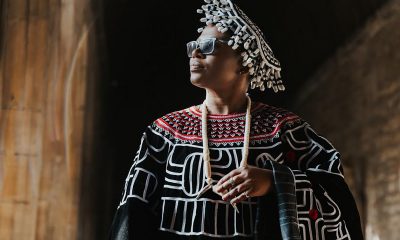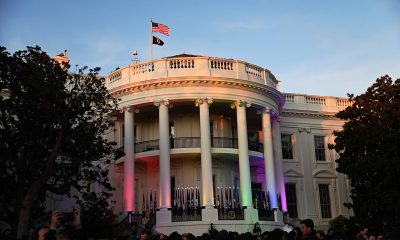World
Out in the World: LGBTQ news from Europe and Asia
Poland’s elections took place on Sunday, UK seeks to limit asylum seekers

Ireland
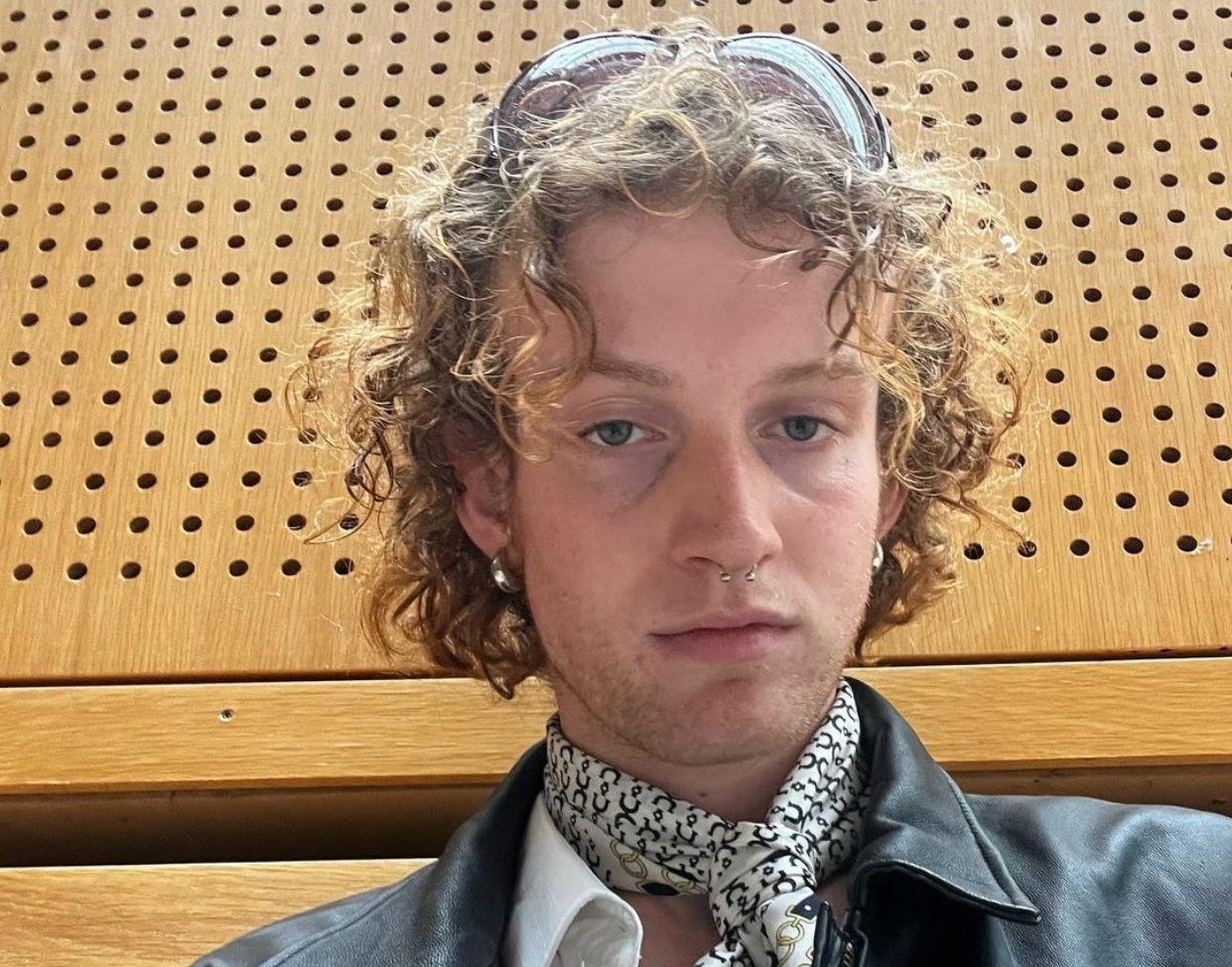
Ireland’s National Police Service is seeking information leading to the arrest of the unknown hit and run driver who struck and killed an openly queer 21-year-old University of Limerick journalism student on Oct 13.
Joe Drennan, a popular and respected student, was the editor-in-chief of Limerick Voice, the award-winning news platform and paper produced by journalism students at the University of Limerick. Drennan was also a contributing writer to Ireland’s LGBTQ media website and magazine GCN.
Dublin-based the Journal News reported that Drennan was standing waiting for a bus around 9.50 p.m., after he had finished a shift at a local restaurant at Dublin Road, Castletroy, Limerick, when a car that had, immediately beforehand, been involved in a collision with another car, as well as an alleged interaction with the police earlier on the night, struck and killed him.
The police said the driver of one of the cars “failed to remain at the scene” and that the driver of the second car, a male in his 40s and a female adult passenger, were taken to University Hospital Limerick for non life threatening injuries.
Drennan’s death has left his family, friends and fellow students and tutors at UL, shocked and distraught.
Paying tribute to Drennan on Sunday, Dr. Kathryn Hayes, course director of journalism and digital communication at the University of Limerick said: “We are absolutely devastated in the journalism department and in the wider UL community to learn of the tragic death of our student Joe Drennan. Our heartfelt sympathies are with Joe’s family at this terrible time and all of his classmates and many dear friends.”
Hayes said Drennan had been “an inspirational student and a hugely talented young journalist, who had a bright career ahead.”
Poland
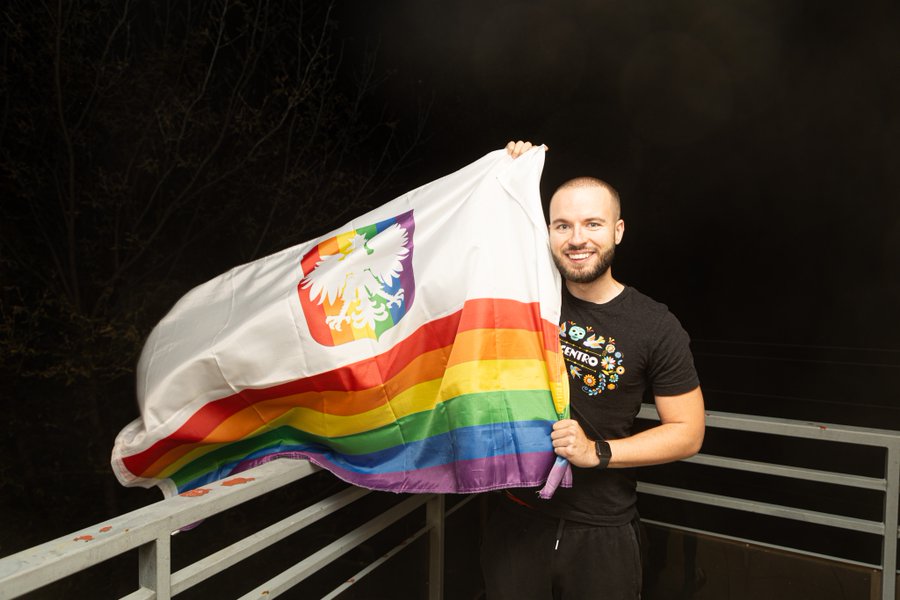
The country’s right-wing populist Law and Justice party, known as PiS, appears to have lost their parliamentary majority in the critical elections held Sunday. The final tally has yet to be announced.
This would end eight years of rule that has seen the Polish government repeatedly clash with the European Union over the rule of law, media freedom, migration and LGBTQ rights since Law and Justice (PiS) came to power in 2015.
Opposition parties led by 66-year-old Donald Tusk’s Civic Coalition have vowed to mend ties with Brussels and undo reforms critics say undermine democratic standards.
Tusk, a former European Council president, is aiming to the PiS rule under Deputy Prime Minister Jaroslaw Kaczynski.
“Poland won, democracy has won,” Tusk told a large crowd of jubilant supporters in what felt like a victory rally in Warsaw. “This is the end of the bad times, this is the end of the PiS government.”
Ipsos polling reported a larger proportion of 18-29 year-olds had turned out to vote than over-60s and election officials said that turnout was probably 72.9 percent, the highest since the fall of communism in 1989.
The BBC reported that President Andrzej Duda, an ally of the socially conservative PiS, would normally ask the biggest party to form a government. However with vote as close as it, if PiS fails to win a vote of confidence, then the Parliament would appoint a new prime minister who would then choose a government and also have to win a confidence vote in Parliament as well.
Leading Polish LGBTQ rights activist Bart Staszewski posted a statement on social media:
“I am gay, I am Polish and I am proud today. After eight years of hate against people like me, LGBT+ people, the creation of LGBT free zones, attacks on women and minorities, Poland is BACK on the path of democracy and the rule of law. This is also end of political trails of human rights activists. This is just the beginning of reclaiming of our country. The fight is ahead but we are breathing fresh air today. After eight years of government hatred, authoritarianism is over in Poland. I still can’t believe it … The nightmare ends …”
Switzerland
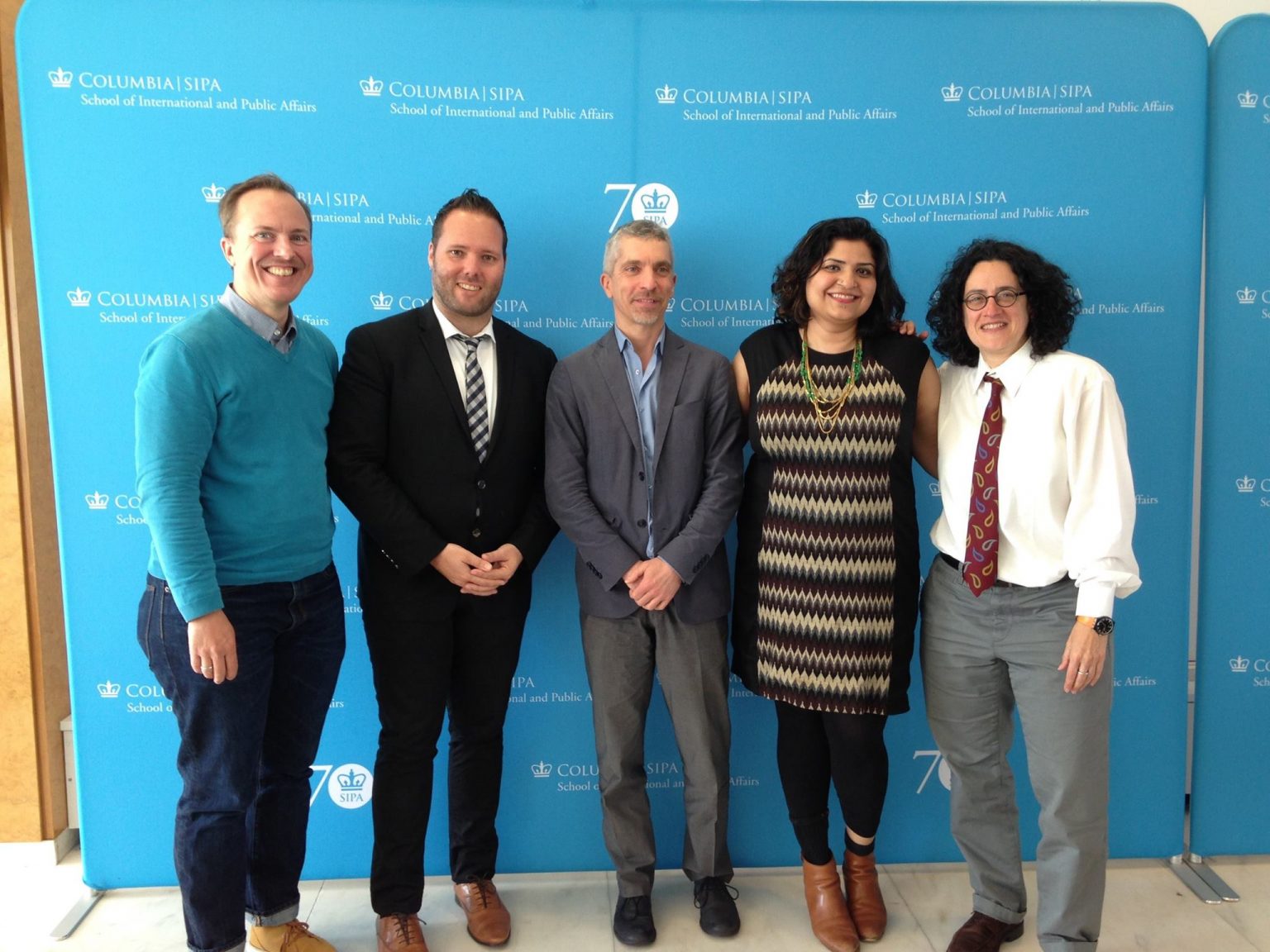
The U.N. Human Rights Council has named Graeme Reid, director of LGBT Rights for Human Rights Watch, as the next Independent Expert on Sexual Orientation and Gender Identity for the UN organization.
Originally from South Africa, Reid is the third person ever to be appointed to hold the #UnitedNations mandate dedicated to addressing specific human rights violations against #LGBT and gender diverse persons, following Vitit Muntarbhorn from Thailand (2016-2017) and Victor Madrigal-Borloz from Costa Rica (2017-2023).
Reid is an expert on LGBTQ rights. He has conducted research, taught and published extensively on gender, sexuality, LGBTQ issues and HIV/AIDS.
Before joining Human Rights Watch in 2011, Reid was the founding director of the Gay and Lesbian Archives of South Africa, a researcher at the Wits Institute for Social and Economic Research and a lecturer in LGBTQ studies at Yale University, where he continues to teach as a visiting lecturer.
An anthropologist by training, Reid received a master’s from the University of the Witwatersrand in Johannesburg and a PhD from the University of Amsterdam.
Turkey

Turkish President Recep Tayyip Erdoğan, speaking before the Congress gathering of his Islamist-rooted AK Party, which currently runs the nation’s government, said earlier this month that “he did not recognize LGBT and vowed to combat perverse trends he stated are aimed to destroy the institution of family.”
Erdoğan, who has held office since 2014, has a lengthy record of anti-LGBTQ statements who has frequently labeled members of the LGBTQ community as “deviants.” At the direction of his government, police agencies across the country have cracked down on Pride events and marches.
Last April, Erdoğan, who was campaigning for reelection, told a rally of supporters in the Aegean city of Izmir, “In this nation, the foundations of the family are stable. LGBT will not emerge in this country. Stand up straight, like a man: that is how our families are,” he added.
While being LGBTQ is not a crime in Turkey, hostility to it is widespread. Same-sex marriage, adoption, surrogacy and IVF are all illegal in the country, as is being openly gay or lesbian person serving in the military.
LGBTQ people are not protected against discrimination in employment, education, housing, healthcare, public accommodations or credit and police crackdowns often at the direction of the government have become tougher over the years.
France

Eric Zemmour, the far-right political leader and former presidential candidate was convicted and fined for for homophobic statements he uttered while being interview on the French national news network CNews program Face à l’info hosted by Christine Kelly four years ago in October 2019.
French online news magazine Têtu.com reported that The Stop Homophobia association had filed a complaint against comments made by Zemmour on the Oct. 15, 2019, show. Speaking about LGBTQ rights during a long debate with Nicolas Bouzou, Zemmour declared: “We have the whims of a small minority which has control over the State and which enslaves it for its own benefit and which will first disintegrate the society, because we are going to have children without a father and I have just told you that it is a catastrophe and, secondly, who is going to make all the other French people pay for his whims.”
The judge of the Cour de Cassation, the highest court of criminal and civil appeal in France, with the power to quash the decisions of lower courts, ruled that Zemmour had acted with“ Behavior contrary to the general interest.” In his decision the judge noted:
“The comments are contemptuous of the people they target, who see their desire for a child reduced to a selfish ‘whim’ and even take on an outrageous dimension when it is attributed to them, to satisfy it, to have recourse to the subjugation of the state apparatus.”
“In this, homosexual people find themselves disqualified in the eyes of the public for who they are, their sexual orientation necessarily inducing, according to the defendant, behavior contrary to the general interest,” he added.
Zemmour was sentenced to a fine of 4,000 euros ($4,223.42).
United Kingdom
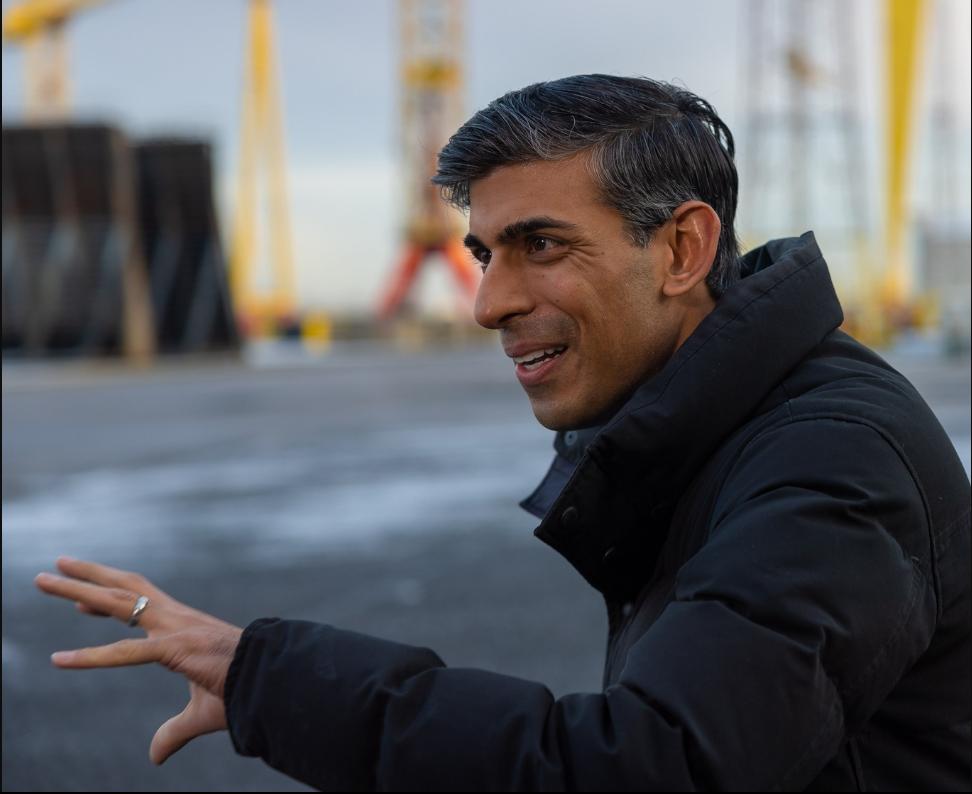
The government of Prime Minister Rishi Sunak is receiving copious amounts of criticism and outrage among the nation’s LGBTQ community and its allies for the anti-LGBTQ refugee asylum seekers and transphobic stance that has been taken by various government ministers including Sunak himself.
In a recent speech delivered last month on Sept. 26 at the American Enterprise Institute in D.C., Home Secretary Suella Braverman addressing the government’s policies towards immigration told the audience:
“I think most members of the public would recognize those fleeing a real risk of death, torture, oppression or violence as being in need of protection. However, as case law has developed, what we have seen in practice is an interpretive shift away from persecution in favor of something more akin to a definition of discrimination. And there has been a similar shift away from a well-founded fear towards a credible or plausible fear, the practical consequence of which has been to expand the number of those who may qualify for asylum, and to lower the threshold for doing so.
“Let me be clear, there are vast swaths of the world where it is extremely difficult to be gay, or to be a woman, where individuals are being persecuted, it is right that we offer sanctuary, but we will not be able to sustain an asylum system, if in effect, simply being gay, or a woman, or fearful of discrimination in your country of origin is sufficient to qualify for protection.
Article 31 of the refugee convention makes clear that it is intended to apply to individuals coming directly, directly from a territory where their life was threatened. It also states where people are crossing borders without permission, they should present themselves without delay to the authorities, and must show good cause for any illegal entry. The U.K., along with many others, including America, interpret this to mean that people should seek refuge and claim asylum in the first safe country that they reach. But NGOs and others, including the U.N. Refugee Agency, contest this. The status quo where people are able to travel through multiple safe countries and even reside in safe countries for years, while they pick and choose their preferred destination to claim asylum is absurd and unsustainable.
Nobody entering the U.K. by boat from France is fleeing imminent peril. None of them has good cause for illegal entry. The vast majority have passed through multiple other safe countries, and in some instances have resided in safe countries for several years. There was a strong argument that they should cease to be treated as refugees during their onward movement. There are also many whose journeys originate from countries that the public would consider to be manifestly safe like Turkey, or Albania or India. In these instances, most are simply economic migrants gaming the asylum system to their advantage.”
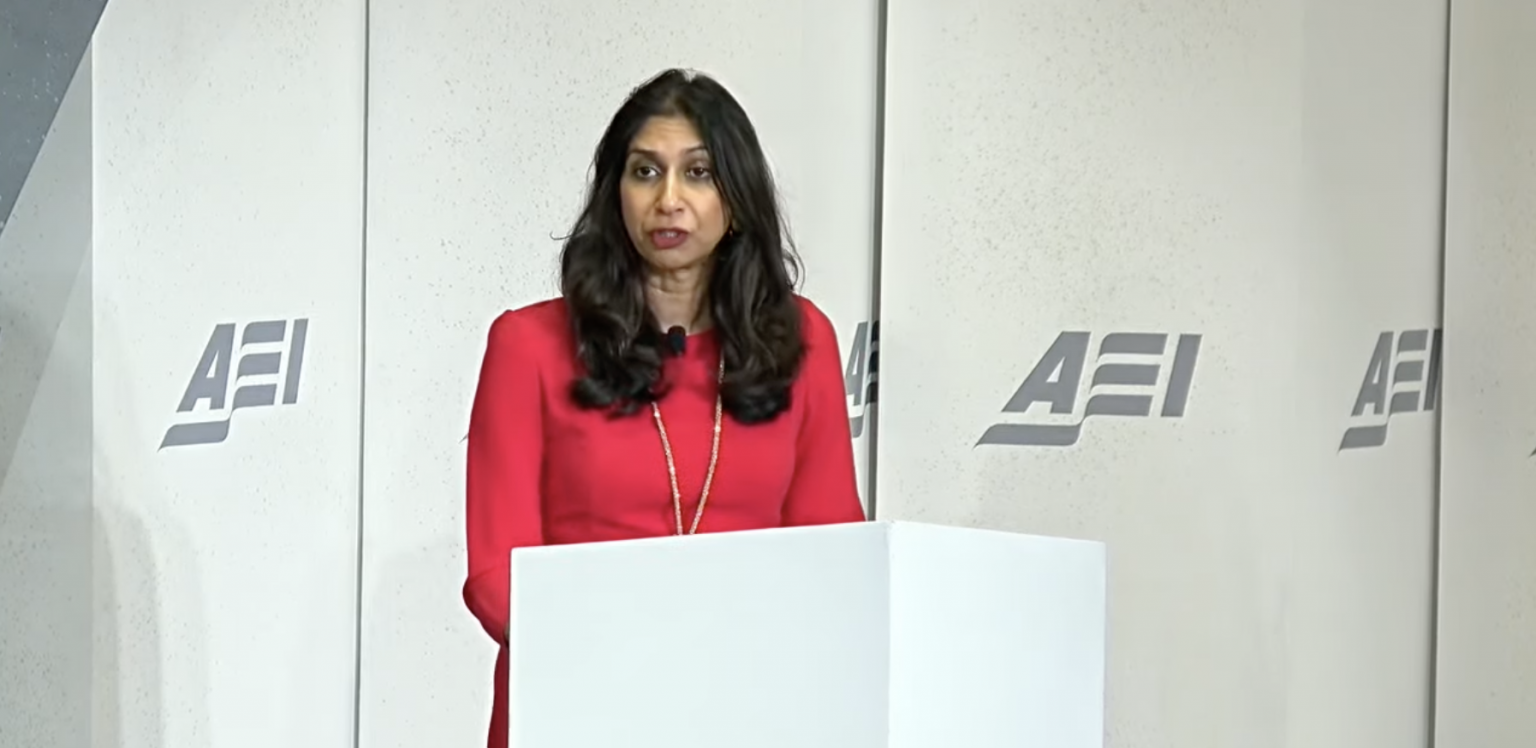
Braverman’s specific remarks portraying Turkey as “manifestly” safe drew harsh critique from LGBTQ groups in Britain pointing out that Erdoğan has publicly labeled LGBTQ people “deviants.”
PinkNewsUK reported that 246 human rights groups banded together to demand that the UK government respect the lives of women and LGBTQ people after Braverman’s D.C. speech.
A joint letter produced by LGBTQ charity Stonewall, and signed by organizations like Amnesty, Oxfam, Refugee Council, Rainbow Migration, and End Violence Against Women Coalition, calls on Sunak to reaffirm the UK’s commitment to protecting LGBTQ people and women worldwide.
The letter also rejects Braverman’s suggestion that LGBTQ people and women are misusing their identities to claim asylum in the UK.
On Oct. 6, the UK government released its annual report that revealed there were 145,214 hate crimes recorded by police in England and Wales in 2022-2023, a slight 5 percent decrease compared to the previous year.
In a briefing outlining new hate crime figures for the UK, the Home Office said that transgender issues had been “heavily discussed by politicians, the media and on social media” over the last year, which it said “may have led to an increase in these offenses.”
It added that the government’s focus on transgender issues could also have led to “more awareness in the police in the identification and recording of these crimes.”
Stonewall, the UK’s largest LGBTQ charity organization, noted that this recent report’s data comes in a continuing surge in reports of anti-LGBTQ and anti-transgender hate in recent months across Britain, Wales and Northern Ireland.
The blame LGBTQ advocates in the UK say also lies with the Prime Minister’s transphobic public comments. At the Conservative Party conference on Oct. 4, the prime minister claimed that Brits are being “bullied” into believing that “people can be any sex they want to be.” He then said it was “common sense” that a “man is a man and a woman is a woman.”
Robbie de Santos, director of external affairs at Stonewall, told PinkNewsUK he is concerned that political figures are dehumanizing LGBTQ people, which “legitimizes violence” instead of acting “seriously or quickly enough” to tackle the rising tide of hate.
Philippines
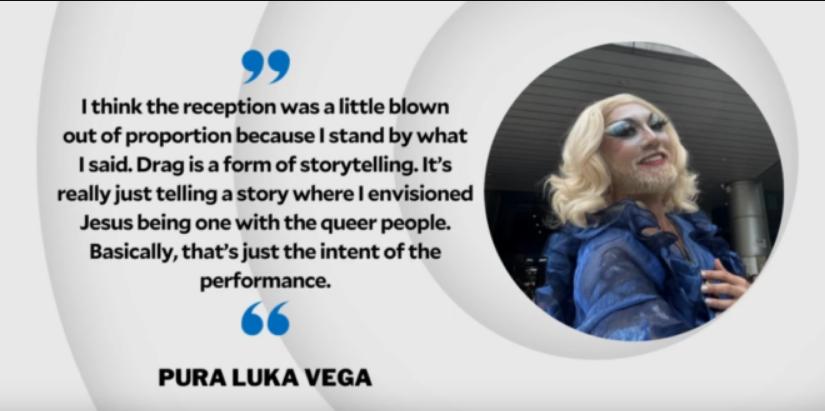
A 33-year-old drag queen, who is currently incarcerated in a Manila jail, is facing up to 12 years in prison under the Catholic-majority country’s obscenity laws for his performance dressed as Jesus Christ, performing a rock version of the Lord’s Prayer in Tagalog.
Amadeus Fernando Pagente, who performs under the stage/drag name Pura Luka Vega, was arrested by Manila police earlier this month after the Philippines for Jesus Movement, comprising Protestant church leaders, registered the first criminal complaint with the Manila Prosecutor’s Office in July of this year followed in August by a second complaint was then filed in August by Nazarene Brotherhood, a Catholic group the BBC reported.
A video of the performance by Pagente had sparked criminal complaints by the Christian groups.

In interviews with AFP, supporters of Pagente are calling for his release with the #FreePuraLukaVega hash tag, arguing that “drag is not a crime.” Some compared the performer’s predicament with alleged murderers and sex crime offenders, whom they claimed remain free and have not been justly dealt with.
Pagente himself told AFP: “The arrest shows the degree of homophobia” in the Philippines. “I understand that people call my performance blasphemous, offensive or regrettable. However, they shouldn’t tell me how I practice my faith or how I do my drag.”
Ryan Thoreson, a specialist at the Human Rights Watch’s LGBT rights program, also called for the charges against Pagente to be dropped.
“Freedom of expression includes artistic expression that offends, satirizes, or challenges religious beliefs,” Thoreson told the BBC.
Additional reporting from GCN, The Journal, BBC, PinkNewsUK, and Têtu.com
Myanmar
LGBTQ advocacy group joins Myanmar earthquake relief effort
March 28 quake killed thousands, devastated country’s second-largest city

A powerful earthquake that rocked Myanmar on March 28 unleashed devastation across the central part of the country.
The U.S. Geological Survey measured the quake at 7.7, and pinpointing its epicenter roughly 10 miles west of Mandalay, the country’s second-largest city. A 6.4-magnitude aftershock jolted the area 12 minutes later, compounding the destruction and deepening the crisis for a nation already strained by conflict.
The earthquake struck with terrifying intensity near its epicenter, wreaking havoc on Mandalay and the nearby city of Sagaing.
Mandalay, a bustling city of approximately 1.5 million residents, bore the brunt of the destruction. Among the most striking losses was the 12-story Sky Villa Condominium, which collapsed, leaving scores trapped beneath the wreckage. Rescue workers scrambled to pull survivors from the rubble, but the rising death toll underscored the tragedy’s magnitude.
In Sagaing, which is located closer to the epicenter, more than 70 percent of buildings sustained damage. The Ava Bridge, an essential artery spanning the Irrawaddy River, collapsed, cutting off a critical connection to Mandalay. The earthquake’s shallow depth of less than seven miles amplified its power, reducing homes, temples, and schools to rubble.
The earthquake’s death toll continues to climb, with at least 3,649 confirmed dead, more than 5,000 injured, and approximately 145 people missing. Amid the widespread devastation, questions loom about the impact on vulnerable populations. The Washington Blade reached out to Colors Rainbow, an organization advocating for LGBTQ rights in Myanmar, to understand how the crisis has affected one of the nation’s most marginalized communities.
Colors Rainbow Executive Director Hla Myat Tun spoke about how his organization is working to address the crisis faced by Myanmar’s LGBTQ community in the aftermath of the earthquake.
Colors Rainbow has implemented a system of multipurpose cash transfers, directing funds to local LGBTQ partner organizations. These grassroots partners, in turn, provide essential support to affected individuals that includes emergency cash assistance, food, non-food items, clean water, and basic emotional support tailored to the immediate needs of their communities.
“We estimate that around 500–800 LGBTQ individuals have been impacted in the affected areas, particularly in Mandalay Region, Sagaing Region, and southern Shan state,” said Hla Myat Tun. “So far, we have been able to directly assist around 80–100 LGBTQ individuals.”
Hla Myat Tun told the Blade that Colors Rainbow is actively gathering data to assess the specific challenges that LGBTQ people are facing in the aftermath of the earthquake.
Preliminary observations, he noted, point to heightened vulnerability among LGBTQ people, driven by social exclusion and limited access to mainstream humanitarian aid. Hla Myat Tun, however, emphasized more comprehensive information is necessary to fully understand the scope of their needs and vulnerabilities in this crisis.
“We are partnering with international LGBTQ and feminist organizations that focus on displaced communities,” said Hla Myat Tun. “These partners provide emergency funds, and we coordinate with local LGBTQ groups to deliver aid directly to affected individuals on the ground.”
Addressing reports of military restrictions on humanitarian aid, Hla Myat Tun explained how Colors Rainbow is managing to reach LGBTQ people who are in conflict zones and areas the military junta controls. Hla Myat Tun highlighted the importance of the organization’s trusted local LGBTQ partners, who are embedded in these regions. Their presence and established networks, he said, are vital in navigating restricted areas and ensuring that aid reaches the LGBTQ people who are most in need.
Hla Myat Tun also provided insight into how Colors Rainbow is tailoring its relief efforts to meet the LGBTQ community’s specific needs.
He said his organization is gathering information directly from LGBTQ people through close coordination with its local partners, relying on both formal and informal communication channels. Hla Myat Tun told the Blade his team conducts daily check-ins via quick telephone calls, ensuring a continuous flow of information to guide their response efforts despite limited internet access, electricity and other challenges.
“Our approach is collaborative — we set strategies and share responsibilities to respond flexibly and safely, based on the rapidly changing local context,” he said. “Personal stories are being documented, but for security reasons, we are cautious about sharing them publicly.”
When asked whether staff or volunteers had harassment, discrimination, or violence while delivering aid — a concern given the precarious legal and social climate for LGBTQ people in Myanmar — Hla Myat Tun said there have been no reported incidents thus far.
“So far, we haven’t received any reports from our staff or local partners about harassment or violence while delivering aid,” he noted, emphasizing Colors Rainbow remains vigilant and has implemented robust safety protocols to protect all involved.
Colors Rainbow relies primarily on funding from international LGBTQ-focused partners. He noted, however, humanitarian funding specifically dedicated to LGBTQ communities remains vastly under-resourced, relative to the pressing needs on the ground. Hla Myat Tun said this shortfall severely limits the scale and reach of Colors Rainbow’s efforts.
“While Myanmar’s legal framework remains outdated, societal attitudes — especially during the civilian government — have shown signs of progress,” said Hla Myat Tun. “We have seen positive change thanks to the work of local LGBTQ organizations.”
“In the current crisis, many communities are working together despite legal barriers. However, in areas without LGBTQ-led organizations, inclusive humanitarian responses are still lacking,” he added. “There’s an urgent need for international humanitarian actors to understand and implement LGBTQ-inclusive practices in Myanmar.”
When asked about long-term strategies to support the recovery and resilience of LGBTQ communities as Myanmar rebuilds, Hla Myat Tun affirmed Colors Rainbow is deeply committed to fostering resilience. The organization’s initiatives include leadership development, community empowerment through training and workshops, sub-granting programs, and organizational development support. He also highlighted Colors Rainbow’s advocacy for LGBTQ-inclusive policies and collaboration with ethnic groups to promote an inclusive federal democracy, and specifically thanked Outright International, a global LGBTQ and intersex rights group, for “amplifying our work.
“This kind of international attention shines a spotlight on the challenges LGBTQ communities in Myanmar are facing and helps open doors for more support,” Hla Myat Tun told the Blade. “It also boosts visibility and solidarity, both locally and globally, which we deeply appreciate.”
Hungary
Hungarian MPs amend constitution to ban public LGBTQ events
Viktor Orbán’s government spearheaded amendment

Hungarian MPs on Monday voted to amend their country’s constitution to ban public LGBTQ events.
The vote took place less than a month after lawmakers banned Pride events and gave authorities the green light to use facial recognition technology to identify those who participate in them.
The Associated Press notes MPs approved the constitutional amendment — which Prime Minister Viktor Orbán’s Fidesz-KDNP coalition government proposed — by a 140-21 vote margin. Authorities before the vote removed a group of protesters who tried to block the entrance to a parliament parking garage.
Orbán’s government over the last decade has moved to curtail LGBTQ and intersex rights in Hungary.
A law that bans legal recognition of transgender and intersex people took effect in 2020. Hungarian MPs that year also effectively banned same-sex couples from adopting children and defined marriage in the constitution as between a man and a woman.
An anti-LGBTQ propaganda law took effect in 2021. The European Commission sued Hungary, which is a member of the European Union, over it.
MPs in 2023 approved the “snitch on your gay neighbor” bill that would have allowed Hungarians to anonymously report same-sex couples who are raising children. The Budapest Metropolitan Government Office in 2023 fined Lira Konyv, the country’s second-largest bookstore chain, 12 million forints ($33,115.76), for selling copies of British author Alice Oseman’s “Heartstopper.”
Former U.S. Ambassador to Hungary David Pressman, who is gay, participated in the Budapest Pride march in 2024 and 2023. Pressman was also a vocal critic of Hungary’s anti-LGBTQ crackdown.
The Washington Blade has reached out to Budapest Pride for comment on the constitutional amendment.
Argentina
Argentina’s transgender community confronts ‘chaotic, desperate’ situation
President Javier Milei has implemented several anti-trans directives

Editor’s note: Washington Blade International News Editor Michael K. Lavers will be on assignment in Argentina through April 12.
BUENOS AIRES, Argentina — A group of Argentine transgender activists with whom the Blade spoke on April 4 said President Javier Milei’s policies have made their community even more vulnerable to violence, discrimination, and poverty.
“The situation is really chaotic, desperate,” said Florencia Guimaraes García, a travesti activist who is president of the House of Lohana and Diana Civil Association. “There is also a lot of fear among the trans and travestí community towards the government’s policies.”
Guimaraes’s group is named after Diana Sacayán, a prominent trans activist who was stabbed to death inside her Buenos Aires apartment in 2015, and Lohana Berkins, the founder of the Association for the Fight for Travesti and Transsexual Identity who died in 2016.
Guimaraes and three other trans activists — Julia Amore, Sasha Solano, and Daniela Ruíz — spoke with the Blade after they participated in a trans and travestí rights forum that took place at an LGBTQ cultural center in downtown Buenos Aires. Alba Rueda, the country’s former special envoy for LGBTQ rights, also took part.
“We are in a bad moment for the rights and quality of life of LGBTQ+ people,” Rueda told the Blade during a February 2024 interview.

Milei took office on Dec. 10, 2023, after he defeated then-Economy Minister Sergio Massa in the second round of that year’s Argentina’s presidential election. Rueda resigned before Milei assumed the presidency.
Milei, an economist and former congressman, shortly after he took office eliminated the country’s Women, Gender and Diversity Ministry.
Milei last year closed the National Institute Against Discrimination, Xenophobia and Racism, a government agency known by the acronym INADI that provided support and resources to people who suffered discrimination based on sexual orientation, gender identity, and other factors. Milei in 2024 also dismissed trans people who the government hired under the Trans Labor Quota Law, which set aside at least 1 percent of public sector jobs for trans people.
Argentina’s landmark Gender Identity Law that, among other things, allows trans and nonbinary people to legally change their gender without medical intervention, took effect in 2012 when Cristina Fernández de Kirchner was president. Milei on Feb. 5 issued a decree that restricts minors’ access to gender-affirming surgeries and hormone treatments.
Gay Congressman Esteban Paulón, a long-time LGBTQ activist, filed a criminal complaint against Milei after he linked the LGBTQ community to pedophilia and made other homophobic and transphobic comments during a Jan. 23 speech at the World Economic Forum in Davos, Switzerland. Millions of people in Buenos Aires and across Argentina participated in marches against Milei that took place less than two weeks later.

Milei is among the heads of state who attended President Donald Trump’s inauguration. Milei also spoke at this year’s Conservative Political Action Conference in National Harbor, Md.
“Violence is more explicit, more common,” Guimares told the Blade, noting police violence has become more common against sex workers who are trans or travestí since Milei took office. Guimares added this situation is worse outside of Buenos Aires.
“The situation is different, depending on the location, and even more so in other provinces,” she said. “Even living in the province of Buenos Aires isn’t the same as living in Salta, or in Jujuy, or in Corrientes, or in provinces where the population is more conservative, where the discourse from the churches is much stronger, where all of this has a much crueler impact.”
“Milei’s discourse has legitimatized all of this,” added Guimaraes.
Amore said Argentina before Milei “had been a beacon” for human rights around the world.
“We’ve been building these laws with a lot of struggle, a lot of effort, with allies, and it wasn’t enough because we didn’t reach our goal,” she said. “These are very young. Our democracy is very young; we have a 40-year-old democracy and we are talking about a Gender Identity Law that is 12-years-old.
Amore added Milei is trying to erase trans and travestí people. Ruiz, an activist and actress who founded Siete Colores Diversidad, agreed.
“It is a cultural battle for us,” Ruiz told the Blade, referring for the continued struggle for trans and travestí rights in Argentina.
“It marks a cultural paradigm shift that we were carrying out day after day, making ourselves visible,” she added. “We carried it out by making ourselves politically visible, by presenting our travestí and trans Latin American visibility as a beacon to the world.”
The activists spoke with the Blade less than three months after Trump took office.
The American president, like Milei, has targeted the trans community with executive orders and policy directives. These include banning the State Department from issuing passports with “X” gender markers and prohibiting trans adults and young people from sports teams that correspond with their gender identity.
Solana, a trans woman from Peru who advocates on behalf of migrants, noted one of the first executive orders that Trump signed directed the federal government to only recognize two genders: Male and female.
“Man and woman. Period,” she said.
Guimares added Milei’s anti-LGBTQ discourse isn’t even his “original speech, but rather a line drawn from the U.S. government of Donald Trump and its agenda, which he established from the beginning and which he campaigned on as well.”
“This also follows in line with parties like Vox in Spain and other European countries, where we see how in Hungary, where an LGBTI Pride march (in Budapest) is now banned, and in other countries around the world where the population is having a really hard time,” said Guimaraes. “So, it’s not something original from Milei, but rather he’s taking part in those political agendas to generate strategies and alliances to be able to access economic resources.”
Amore, for her part, urged her American counterparts to continue the fight.
“Don’t let down your guard,” said Amore. “Organize. Come together. Speak out. Become visible in community. Respect the diversity of voices and put your own voices first and make yourselves more visible.”
-

 Opinions4 days ago
Opinions4 days agoIt’s time for new leadership on the Maryland LGBTQIA+ Commission
-

 The White House4 days ago
The White House4 days agoWhite House does not ‘respond’ to reporters’ requests with pronouns included
-

 Noticias en Español5 days ago
Noticias en Español5 days agoINDIGNACIÓN: ¡El transfeminicidio de Sara Millerey en Colombia nos cuestiona como sociedad!
-
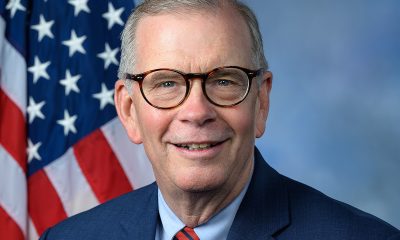
 Congress5 days ago
Congress5 days agoHouse Republicans advance two anti-trans education bills

